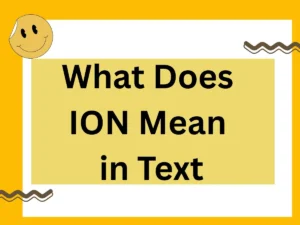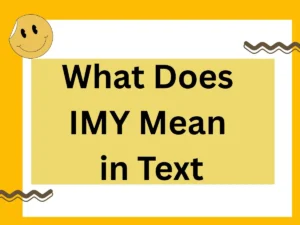The digital world thrives on abbreviations. From the classic “LOL” of early internet chats to newer slang like “WYLL,” people love shortening expressions for speed and style. One abbreviation that remains extremely common in 2025 online communication is TG.
🔥 Rizz Line Generator 🔥
But here’s the catch—TG doesn’t always mean the same thing. Its meaning shifts based on platform, audience, and cultural context. That’s why many people get confused when they see it.
In this article, we’ll explore:
- The main meanings of TG in text (2025 edition)
- How its usage differs in casual, professional, and global contexts
- Why the meaning has evolved over time
- 10 polished alternatives you can use when you want to be polite, professional, or just plain clear
- Examples and tone breakdowns so you know exactly when to use what
By the end, you’ll not only know what TG means in text but also how to use it naturally—without missteps or misunderstandings.
The Core Meaning of TG in Text (2025)
As of 2025, TG most commonly stands for:
👉 “Thank God”
👉 “Thank Goodness” (a softer, secular variation)
👉 “Telegram” (when referencing the messaging app)
In informal online communication, TG is overwhelmingly used to express relief, gratitude, or positive emotion.
Example:
- “TG it’s Friday, I needed this weekend.”
- “TG you reminded me, I almost forgot the deadline.”
But in professional or cross-cultural spaces, relying on TG = Thank God can be risky. Some people prefer Thank Goodness because it avoids religious undertones.
Meanwhile, in tech and startup circles, TG frequently refers to Telegram, the secure messaging app, especially in crypto and developer communities.
Why TG Became So Popular
Linguists who study online discourse note that abbreviations thrive when they are:
- Short — only two letters, easy on mobile.
- Flexible — TG works in emotional, casual, and even ironic tones.
- Context-driven — meaning changes based on conversation, which adds a playful layer to digital communication.
In 2025 surveys of Gen Z digital slang trends (conducted by linguistic researchers), TG ranked in the top 20 most-used abbreviations in text. This suggests it’s not just a passing fad—it has staying power.
Nuances of Tone: Formal vs. Informal TG
The meaning of TG isn’t just about what it stands for—it’s also about tone.
- Casual tone:
- “TG the bus came on time.”
- Light, informal, fits with friends.
- Polite but secular tone:
- “TG you made it safely (Thank Goodness).”
- Works in broader settings without religious assumptions.
- Professional caution:
- In corporate communication, avoid TG unless you know the audience well. Instead, use a full phrase: “I’m relieved that…” or “Glad you’re safe.”
10 Polished Alternatives to TG in Text
If you want to sound thoughtful, polite, or professional, here are 10 excellent alternatives to TG—complete with usage examples and tone guidance.
1. I’m So Relieved
- Tone: Polite, emotional, universally clear.
- Example: “I’m so relieved you arrived before the storm.”
2. Thank Goodness
- Tone: Casual but safe, avoids religious undertone.
- Example: “Thank goodness the meeting ended early.”
3. I’m Glad That…
- Tone: Professional, suitable for work emails or academic settings.
- Example: “I’m glad that the report reached you on time.”
4. Lucky That…
- Tone: Neutral, sometimes playful.
- Example: “Lucky that we grabbed tickets before they sold out.”
5. So Grateful
- Tone: Sincere, can be formal or informal.
- Example: “So grateful you reminded me about the interview.”
6. Fortunate That…
- Tone: Formal, academic, polite.
- Example: “It’s fortunate that the system updated successfully.”
7. Glad Everything Worked Out
- Tone: Reassuring, empathetic.
- Example: “Glad everything worked out with your presentation.”
8. Huge Relief
- Tone: Emotional, casual but strong.
- Example: “What a huge relief that exam is over!”
9. Couldn’t Be Happier
- Tone: Friendly, enthusiastic.
- Example: “Couldn’t be happier that you made it!”
10. Feeling Blessed
- Tone: Spiritual/religious, but used casually in many circles.
- Example: “Feeling blessed that my family is safe.”
Choosing the Right Alternative: Context Matters
Communication experts stress that context determines appropriateness:
- With Friends: “TG” or “Thank Goodness” works fine.
- In Professional Emails: Always choose fuller, polite alternatives like “I’m relieved…”
- On Social Media: Tone can be playful, even exaggerated—“TG I survived Monday 😅”
- Cross-Cultural Chats: Be cautious—religious phrasing doesn’t resonate universally.
The Global Angle: TG Across Cultures in 2025
Interestingly, “TG” also picks up localized meanings:
- In South Asia: TG is sometimes shorthand for Telegram, not “Thank God.”
- In Middle Eastern chats: Users often prefer spelling out full phrases to avoid ambiguity.
- In Western casual slang: TG still leans toward “Thank God/Goodness.”
This shows that abbreviations aren’t universal—they adapt with communities.
The Future of TG: 2025 and Beyond
Linguists tracking digital slang predict that TG will:
- Remain common in casual chats for the next decade.
- Shift even more toward “Thank Goodness” in professional/neutral contexts.
- Coexist with other gratitude phrases like “TYSM” (Thank You So Much) and emojis (🙏).
- Keep strong presence in tech spaces as shorthand for Telegram.
In other words, TG isn’t going away—it’s simply branching into multiple meanings.
Final Thoughts
So, what does TG mean in text?
At its heart, TG means “Thank God” or “Thank Goodness”—a quick, two-letter way to show relief or gratitude. But as with all abbreviations, context is everything.
- In casual chats: TG is fast and trendy.
- In professional settings: Alternatives like “I’m so relieved” or “Glad it worked out” carry more weight.
- In global communities: TG may mean Telegram, showing how fluid slang can be.
By using the 10 polished alternatives listed above, you’ll never get stuck wondering whether TG feels too casual, too religious, or too unclear. Instead, you’ll always have the right phrase for the right moment.





